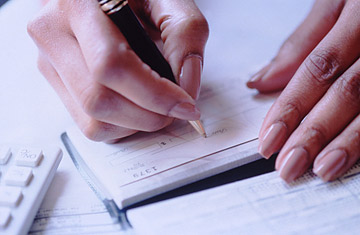
The use of Twitter for micropayments — small loans or payments to companies for services, essentially no more than an extension of a user's PayPal, checking or credit card account — is already in its early stages. Exchanging money, making payments, charging for goods and services through fairly traditional means are only the start of a large independent economy that will emerge on Twitter. One model that is being tested allows consumers to put cash into a Twitpay account through a payment service like PayPal and then send a tweet to another Twitpay member, structured like "@josh twitpay $10 for Burger King." The Twitpay operation takes a $0.05 commission. Its founders are hoping that eventually it can be used for charity and disaster-relief payments. (See 10 things to buy during the recession.)
Twitpay and services like it will extend the reach of operations like eBay's (EBAY) PayPal. eBay, Amazon (AMZN) and other e-commerce operations will get a financial benefit from real-time micropayments. Hyper-local marketers will also benefit from the ability of Twitter users to make small payments.
Twitter is also likely to evolve into a service like the old Western Union. A customer or business would walk into a physical location and give Western Union cash, which would be wired to another location to be picked up as cash. For decades, the large global florist alliance, FTD, worked in a similar way: one florist would send an order to another; the payments would be settled later by wire or mail. Twitter could well be the basis for a service in which florists, bars or restaurants could set up payment networks. A trusted patron at a bar in San Francisco could tweet money to a patron in a trusted bar in NYC. The relationships between customers and businesses would revert, to some extent, to those of another time, when bonds were based on longer-term relationships. The advantage of this return to a cash-payment system is that a bar where someone can get money from a saloon-to-saloon tweet is a bar that sells more liquor. It is important to remember that millions of Americans do not have credit cards and many do not have bank accounts. Using Twitter as a way to transfer money would makes local businesses into simple versions of banks. (Watch TIME's video on the future of capitalism.)
One of the results of this kind of vast and unregulated system for transferring cash and credit is that it could create a sort of black market in goods and services, which would be hard for the government to track and tax. Twitter may become a remarkably good way to keep money from the IRS.
— Douglas A. McIntyre
See how Americans are spending now.
For constant business updates, go to 24/7wallst.com.